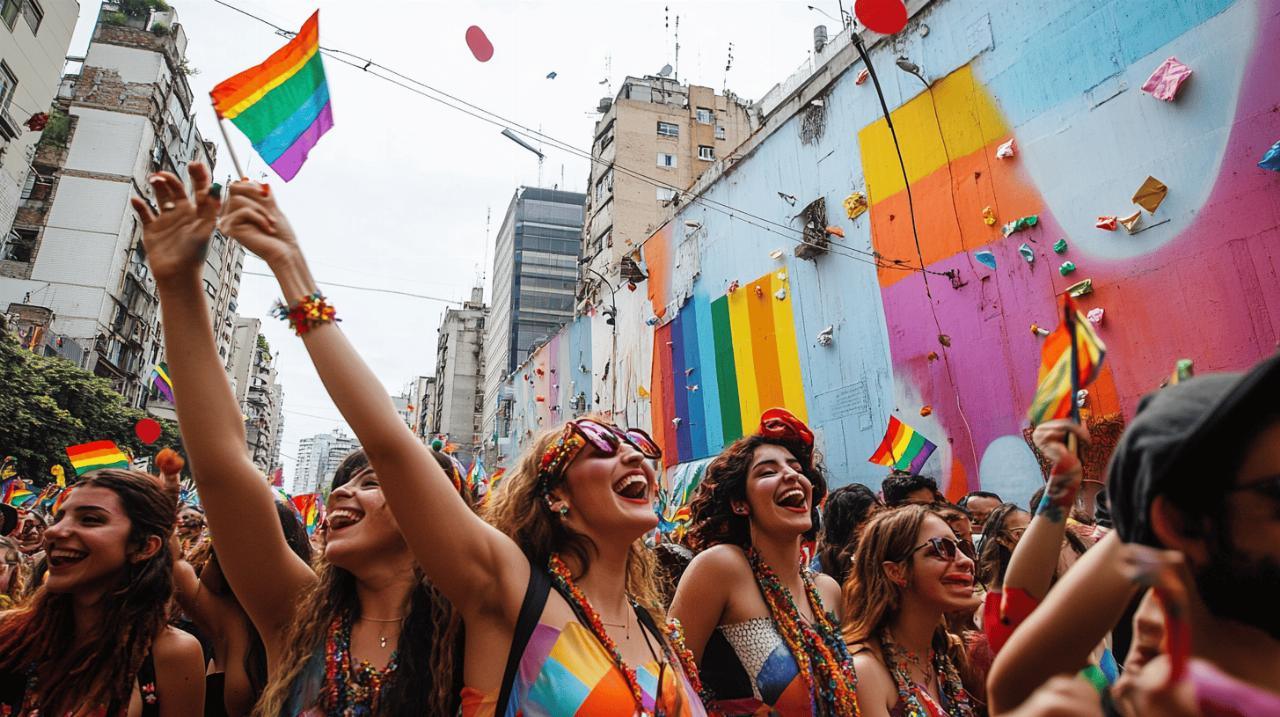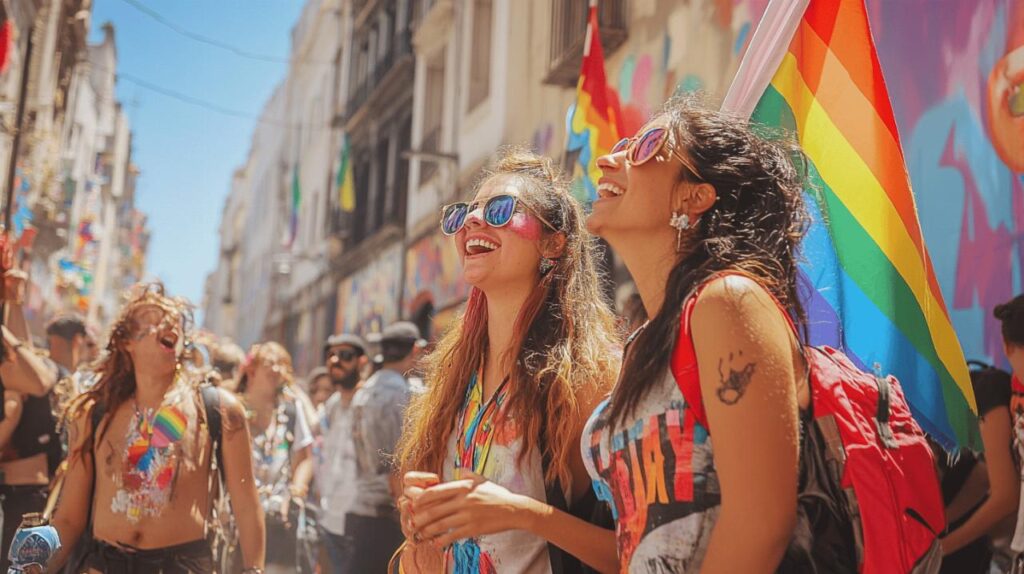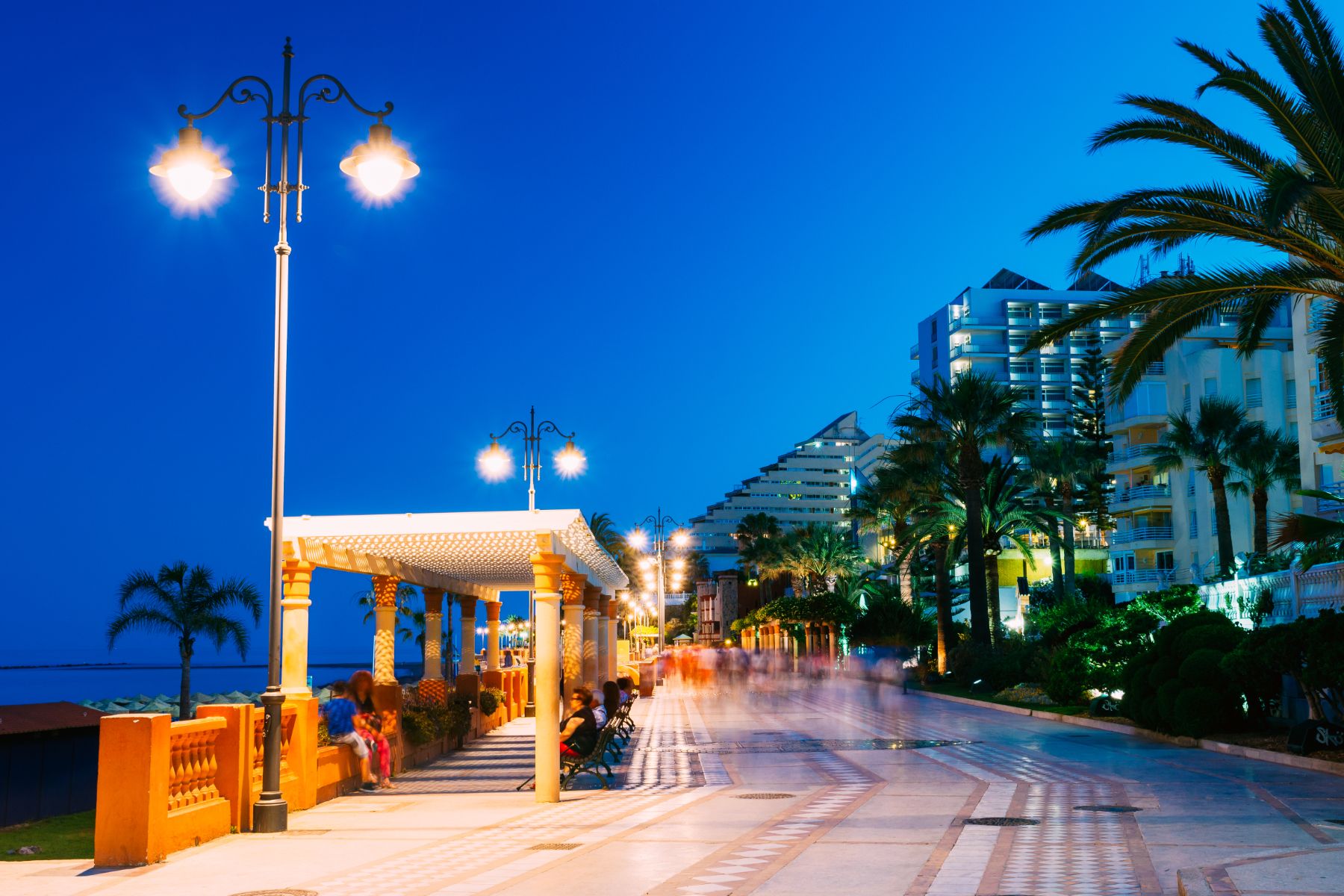Buenos Aires, often referred to as the ‘Paris of South America’, stands out as a beacon of acceptance and celebration for the LGBTQ+ community in Latin America. With its European-influenced architecture, vibrant cultural scene, and progressive attitudes, Argentina’s capital has become a premier destination for queer tourism. The city pulses with energy through its diverse neighbourhoods, cultural spaces, and nightlife venues that welcome visitors from across the gender and sexuality spectrum. As we explore the unique tapestry of LGBTQ+ life in Buenos Aires, we’ll discover how this cosmopolitan city has embraced diversity to create one of South America’s most inclusive urban experiences.
The Evolution of LGBTQ+ Rights in Buenos Aires
The journey towards LGBTQ+ equality in Buenos Aires has been marked by significant milestones that have transformed Argentina into a regional leader for queer rights. While many Latin American countries still struggle with LGBTQ+ acceptance, Argentina blazed a progressive trail by becoming one of the first countries in the region to legalise same-sex marriage in 2010. This watershed moment came after decades of grassroots activism that began with the founding of Nuestro Mundo, the first LGBTQ+ rights group established in 1967. For tourists seeking information about these historical developments, resources like those found on https://www.walkabout-travel.de/ provide valuable context for understanding the cultural landscape they’ll encounter.
Legal milestones that shaped equality
The legal framework supporting LGBTQ+ rights in Buenos Aires has evolved dramatically over the past several decades. Beyond marriage equality, Argentina has implemented comprehensive anti-discrimination protections and pioneered transgender rights legislation that allows individuals to change their legal gender without requiring medical intervention. The Carlos Jáuregui Station, named after a prominent sexual diversity activist, stands as a physical monument to this progress. Since its dedication in 2017, this subway station welcomes approximately 300,000 daily commuters and serves as a visible reminder of the city’s commitment to inclusion. This symbolic recognition in public infrastructure demonstrates how deeply LGBTQ+ acceptance has been woven into the fabric of Buenos Aires society.
Community advocacy and social progress
The vibrant LGBTQ+ community in Buenos Aires has been instrumental in driving social change through visibility and celebration. From humble beginnings in 1992 when the first Pride march drew only about 300 participants, the annual November event has grown exponentially to attract around 200,000 people. Starting at the iconic Casa Rosada, the presidential palace, this massive demonstration of solidarity and joy has become a cornerstone event in the city’s cultural calendar. Beyond organised activism, numerous cultural centres like Casa Brandon in Villa Crespo, founded in 2005, have created safe spaces for queer expression, education, and community building. These grassroots initiatives have collectively transformed Buenos Aires into a city where LGBTQ+ identities are not merely tolerated but celebrated as an integral part of its cultural identity.
Lgbtq+ neighbourhoods and hotspots
Buenos Aires offers a rich tapestry of LGBTQ+-friendly areas, with certain neighbourhoods emerging as particular havens for the community. The districts of Palermo, Recoleta, and San Telmo have developed reputations as especially welcoming areas, each with its own distinct character and offerings. These neighbourhoods provide not only nightlife options but also daytime cultural experiences, dining venues, and community spaces where queer locals and visitors alike can feel at home. The concentration of LGBTQ+ establishments in these areas has created organic cultural districts that serve as the beating heart of queer life in the Argentine capital.
Palermo Soho and its queer-friendly establishments
Palermo Soho stands out as the most dynamic and trendy LGBTQ+ hub in Buenos Aires. This hip neighbourhood buzzes with eateries, coffee shops, and captivating street art that make it worth exploring even beyond its queer credentials. For nightlife enthusiasts, venues like Peuteo, a queer bar open Wednesday to Sunday from 6 p.m. to 3 a.m., offer relaxed spaces to socialise. The area also hosts popular events like Fiesta Jolie, which provides free entry on Wednesdays at Club Araoz. For queer women specifically, Rose Girls organises gatherings on Thursdays and Saturdays, with special Sunday ‘Mega Rose Girls’ parties. Beyond nightlife, Palermo Soho embraces queer culture through initiatives like Wine Tasting Buenos Aires, which offers sampling sessions of five Argentine wines paired with appetisers in a welcoming environment.
San Telmo’s historic LGBTQ+ venues
San Telmo, with its cobblestone streets and colonial architecture, offers a more historic setting for LGBTQ+ venues. This neighbourhood blends traditional Argentine culture with progressive spaces, creating a unique environment where the past and present of queer Buenos Aires coexist. YÖBLA.BAR represents this fusion perfectly, operating as a community bar created by queer political migrants who have found refuge and expression in this historic district. The neighbourhood also hosts several traditional milongas where queer tango thrives, with venues like La Marshall, Tango Queer, and Maldita Milonga offering safe spaces for same-sex dance partners to participate in Argentina’s most famous cultural export. These establishments have reclaimed and queered traditional Argentine cultural forms, demonstrating how San Telmo serves as both a preserver of history and an incubator for evolving expressions of LGBTQ+ identity.


